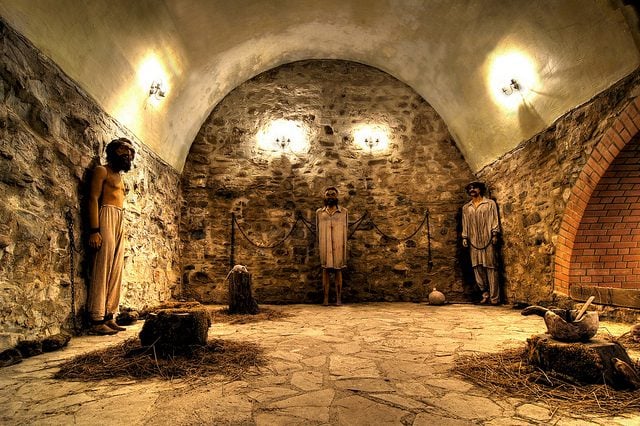
Lent 4C — Sunday, March 10 — Luke 15:1-3, 11b-32
God is irresponsible.
Hopelessly so.
In the well-worn parable of the prodigal son, it seems Jesus is telling us God can’t be bothered to consider the consequences of actions — God’s or those of sinners.
God is feckless.
Ridiculously so.
This is the Gospel of our Lord.
Yet, to our minds, God’s love, demonstrated in this parable, seems rather immoral. It doesn’t sit well with us. It casts aside right and wrong. There are no consequences. There are no lessons to learn. (Read the companion piece on the parable of the lost shepherd here)
God seems to appear in this story in the role of the doddering old fool, manipulated by the half-cooked apology of the prodigal son to forget all that has passed. Not only this, but the father ignores the harm done to the other son, the one who stayed home, followed the rules, loved him without vacation.
And the father does harm the other son. The father’s indiscriminate love to the prodigal wounds the brother, as it rightly would us all.
But what if God isn’t the father in this story?
What if God instead is the prodigal who seems so irresponsible?
What if God is the God who comes to us in the disguise of those we despise, those who have hated and killed us, rejected us and abandoned us, those who annoy and frustrate us most, those who are excluded?
In the guise of the sinner, the debauched, the prostitute, the unclean, the enemy, the unsavory, God comes to us and challenges us to participate in a radical, irresponsible hospitality that turns the rules of polite society upside-down.
And if God comes to us as this, how do we respond? As the father does, subverting social norms and opening his life to the chaos the prodigal brings? Or as the brother does, maintaining society’s values but closing off his life to loving the Other?
In this parable, Jesus is asking us whether we will entertain angels, even if the angels look to us like demons, like exactly what we fear and loathe. He is asking us whether we can overcome our prejudice and the oppression of religiosity to open our arms enough to embrace the Other, the other who is actually our closest kin.
Jesus once said that if we have seen the thirsty, the oppressed, the imprisoned, the lame, the blind, the abused, the neglected, then we have truly seen him. Not some metaphorical carbon copy, seen him, Jesus our Lord.
And Jesus invites us to open our banquet tables to him, wherever we find him.
This story is prefaced in Luke with concerns from the religious elite about the company Jesus kept at table. This wasn’t a matter of simply transgressing social norms. To the people of the time, the fellowship you kept, who you dined with, determined who you were. To the people of the time, because Jesus supped with the unclean, the tax collectors, the prostitutes, the worst of the worst, Jesus, too, was the unclean, the tax collector, the prostitute, the worst of the worst.
Jesus isn’t the father.
Jesus is the prodigal.
He asks us whether we will accept him, even if he reeks of what we think is unwashed sin.
He asks us whether we will embrace him, unclean and unsavory to our tastes, with the lavish grace of a banquet.
He asks us whether we will run out to meet him when we see him lost, alone, bedraggled, and abused; whether we will be eager and expectant to do the irresponsible thing of living out the Good News.
He asks us whether we, like the father in the story, have the generosity to accept him as he appears; or whether we, like the brother, will demand that God not be so irresponsible and insist that God come to us only in the ways we find acceptable.
______
Every so often, I like to take a parable and rework it from an unconventional angle to see where it leads. This is less an exegetical take on the parable and more an exploration of its characters and themes, an avant-garde reading of the Parable of the Sons in Luke 15.
Thanks for reading. If you enjoyed this post, take a moment to subscribe via e-mail and receive posts directly to your inbox.











